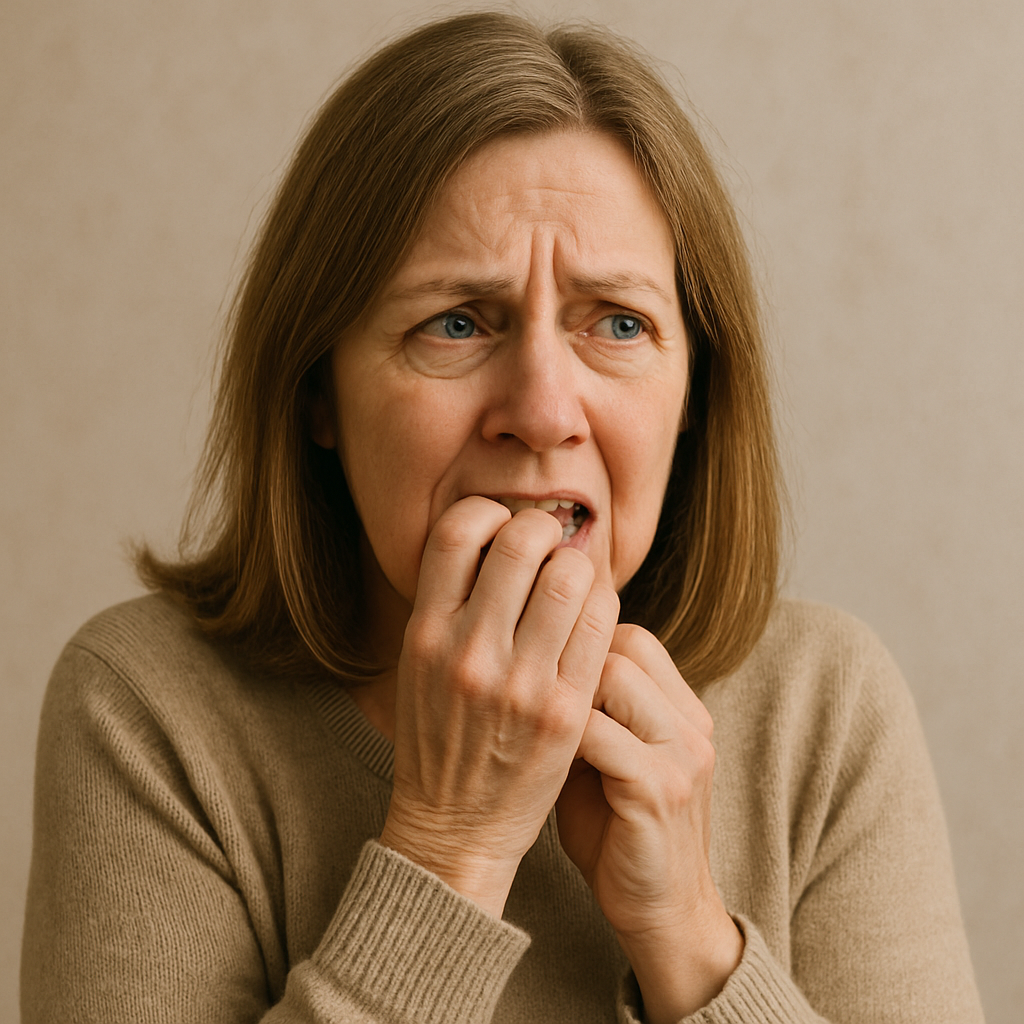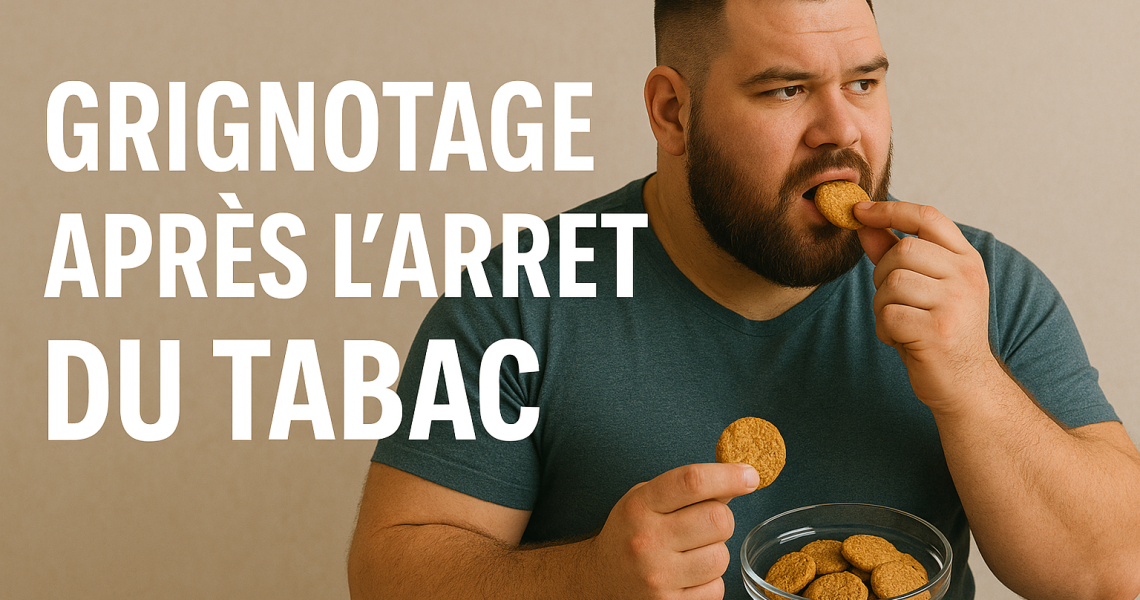One of the major challenges of smoking cessation is not to compensate for stopping smoking by increasing snacking. Many smokers feel an irrepressible urge to eat when they stop, mainly to fill the void left by smoking. This habit can lead to weight gain and a feeling of frustration that complicates weaning.
Fortunately, there are ways to avoid this dietary compensation while remaining motivated and maintaining a balanced diet. In this article, we’ll look at why stopping smoking encourages snacking, explore effective strategies for limiting these cravings, and discover how the anti-smoking laser canhelp you succeed in your weaning without weight gain or frustration.
The impact of smoking on health is well known, and quitting smoking has many beneficial effects on the body. However, to avoid putting on weight, it’s important to follow the right advice and adopt a balanced diet to avoid excess calories.

Why do I feel like snacking after I’ve stopped smoking?
Nicotine and its role on appetite
Nicotine plays a role in regulating appetite by stimulating certain areas of the brain linked to satiety. When smokers stop consuming cigarettes, they may experience an increase in appetite, as their bodies no longer have this artificial stimulation. As a result, the sensation of hunger may be stronger, leading to compulsive snacking.
What’s more, quitting smoking alters the perception of taste and smell, making food more palatable and encouraging increased consumption. It is therefore essential to understand these mechanisms so as to better anticipate them and avoid overeating. To limit the effects on your metabolism and preserve your health, it is advisable to monitor your calorie intake and adopt healthy eating habits.
The desire to compensate for the act of smoking
Smoking is an ingrained habit for smokers, and the disappearance of this gesture can create withdrawal. As a result, many compensate by putting food in their mouths, thus reproducing the movement of smoking. This phenomenon is particularly marked in moments of stress, boredom or after meals.
To counter this craving, it may be useful to replace the act with alternatives such as chewing gum, drinking a large glass of water or using suitable nicotine replacement products. The aim is to break the association between a cigarette break and food intake. This limits the effects of smoking on weight, and reduces the risk of gaining weight after quitting.

The impact of stress and emotions on diet
Stress and anxiety are factors that drive people to snack more, and quitting smoking can increase these emotions. Many ex-smokers find comfort in food, especially sweet or high-fat foods, which can lead to unwanted weight gain.
Adopting stress management techniques, such as meditation, deep breathing or sport, can help to ease this transition period and avoid compensating with food. Follow-up with a specialist can also provide personalized advice to avoid excess calories and limit the risks associated with poor nutrition.
What can be done to avoid snacking after quitting smoking?
Adopt a balanced diet and structured meals
To avoid cravings, it’s essential to maintain a balanced diet and not skip meals. A protein-rich breakfast, a balanced lunch and a light dinner help stabilize blood sugar levels and reduce snacking cravings.
Foods rich in fiber, protein and good fats (such as fruit, vegetables, fish and oilseeds) are the best choice for lasting satiety. Hydration is also key: drinking enough water throughout the day helps limit false hunger signals. By following this advice, you can stabilize your weight and limit the side effects of smoking cessation.
Finding healthy alternatives to snacking
Instead of craving sweets or industrial snacks, you can opt for healthier alternatives:
- Fresh or dried fruit for fiber and energy,
- Oilseeds (almonds, walnuts, hazelnuts) rich in good fats,
- Plain yoghurt or fromage frais for a satiating effect,
- Crunchy vegetable sticks for chewing without excess calories.
By integrating these new eating habits, you can control your calorie intake, reduce the risk of weight gain and preserve your health.
The anti-smoking laser, an effective solution for limiting snacking
How does the anti-smoking laser affect appetite management?
The anti-smoking laser is a method based on the stimulation of specific acupuncture points to reduce the desire to smoke and compensate by eating. By acting directly on the pleasure and stress receptors, this technique limits cravings and avoids the sensation of withdrawal often associated with withdrawal. This approach also helps to avoid an overly strict diet, which could damage nutritional balance and accentuate the undesirable effects of withdrawal.
Conclusion
Smoking cessation need not be synonymous with weight gain and food frustration. With a balanced diet, regular physical activity and effective stress management, it is possible to limit post-smoking nibbling and avoid compensating with food.
The anti-smoking laser is a natural solution that helps to gently reduce cigarette cravings and compulsive eating. Thanks to this approach, it’s possible to stop smoking while maintaining your well-being and a stable weight.
🚀 Choose a successful and balanced withdrawal today!
📺 The media are talking about Mylasertabac :
sinactiv.fr, naturopat.fr, sante-et-beaute.fr, monparrainsante.com,hypnoandco.com,l-hexagone.fr, mondentistechampigny.fr, france-pharmacies.fr, santeplusmag.com
